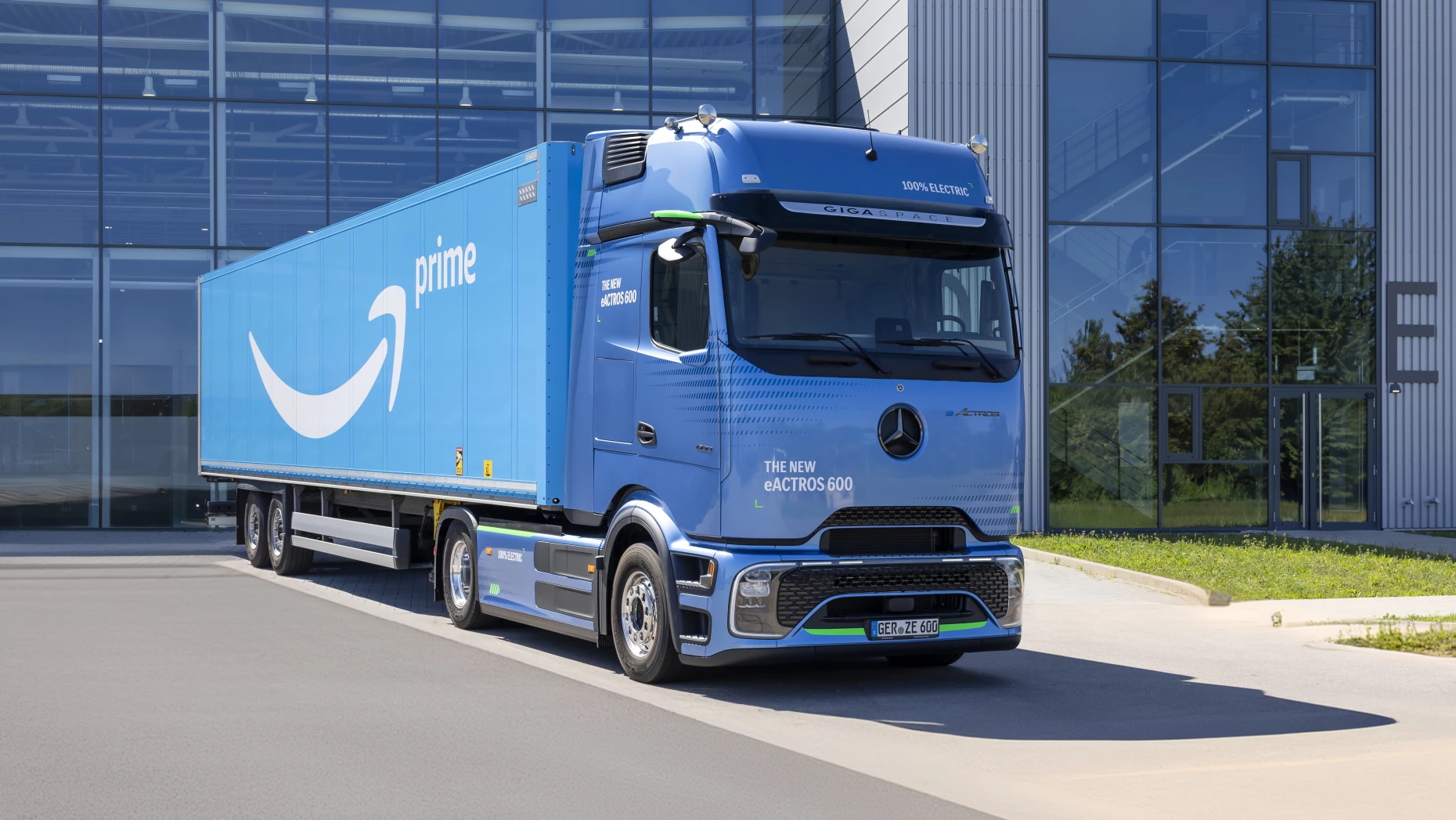Amazon has placed its largest order of electric trucks to date, securing 200 fully-electric Mercedes-Benz eActros 600 heavy goods vehicles from Daimler.
The trucks are set to serve the UK and Germany, which the company said reinforces its commitment to decarbonising its transportation network as part of broader sustainability goals.
This significant order, announced on 13 January, is a key step in Amazon’s push towards achieving net-zero carbon emissions by 2040. According to Andreas Marschner, vice president of Amazon Worldwide Operations Sustainability, decarbonising the heavy goods sector is “the most challenging part of the transportation space.” The new trucks, each with a range of 500 km (311 miles), will be deployed on high-mileage routes connecting Amazon’s fulfilment centres, sort centres, and delivery stations.
Of the 200 vehicles, 140 will be stationed in the UK, with the remaining 60 heading to Germany. The UK fleet includes an additional eight Volvo FM Battery Electric trucks, as part of a wider government-supported initiative. These new electric vehicles are expected to handle the transportation of over 350 million packages annually across both countries.
To support the rollout, Amazon will install a fast-charging infrastructure across its sites, with 360kW chargers capable of bringing the trucks’ batteries from 20% to 80% charge in under an hour. “The combination of our biggest-ever order of electric heavy goods vehicles and the electric rail network now being used to transport customer packages, all alongside our partners’ fleet of electric vans and e-cargo bikes, will help us move more customer orders across our fulfilment network with zero exhaust emissions,” said Nicola Fyfe, EU vice president of Amazon Logistics.
This expansion is part of a broader strategy to reduce carbon emissions in the UK, where Amazon has also launched rail deliveries at scale. Products are now transported on the electric West Coast Main Line, reducing road traffic and emissions. In addition, Amazon has introduced on-foot and electric cargo bike deliveries in central London, further supporting the company’s sustainability targets.
Marschner acknowledged the challenges surrounding the expansion of electric vehicle infrastructure, particularly in terms of the availability of high-capacity public charging stations. However, Amazon continues to collaborate with regulators and charging companies to address these issues.
Amazon’s electric vehicle fleet in Europe is expected to grow significantly, with over 1,500 electric trucks, including more than 500 in Germany, joining its operations in the coming years. This initiative underscores Amazon’s role in the broader shift towards sustainable logistics and transportation.
Demonstrating this shift towards more eco-friendly HGVs, UK supermarket Marks & Spencer has announced the introduction of 85 zero or lower emission vehicles to its supply chain logistics fleet. The company said that once these 85 vehicles are in operation, almost 10% of M&S’ total transport fleet will be powered by zero or lower-emission solutions.


